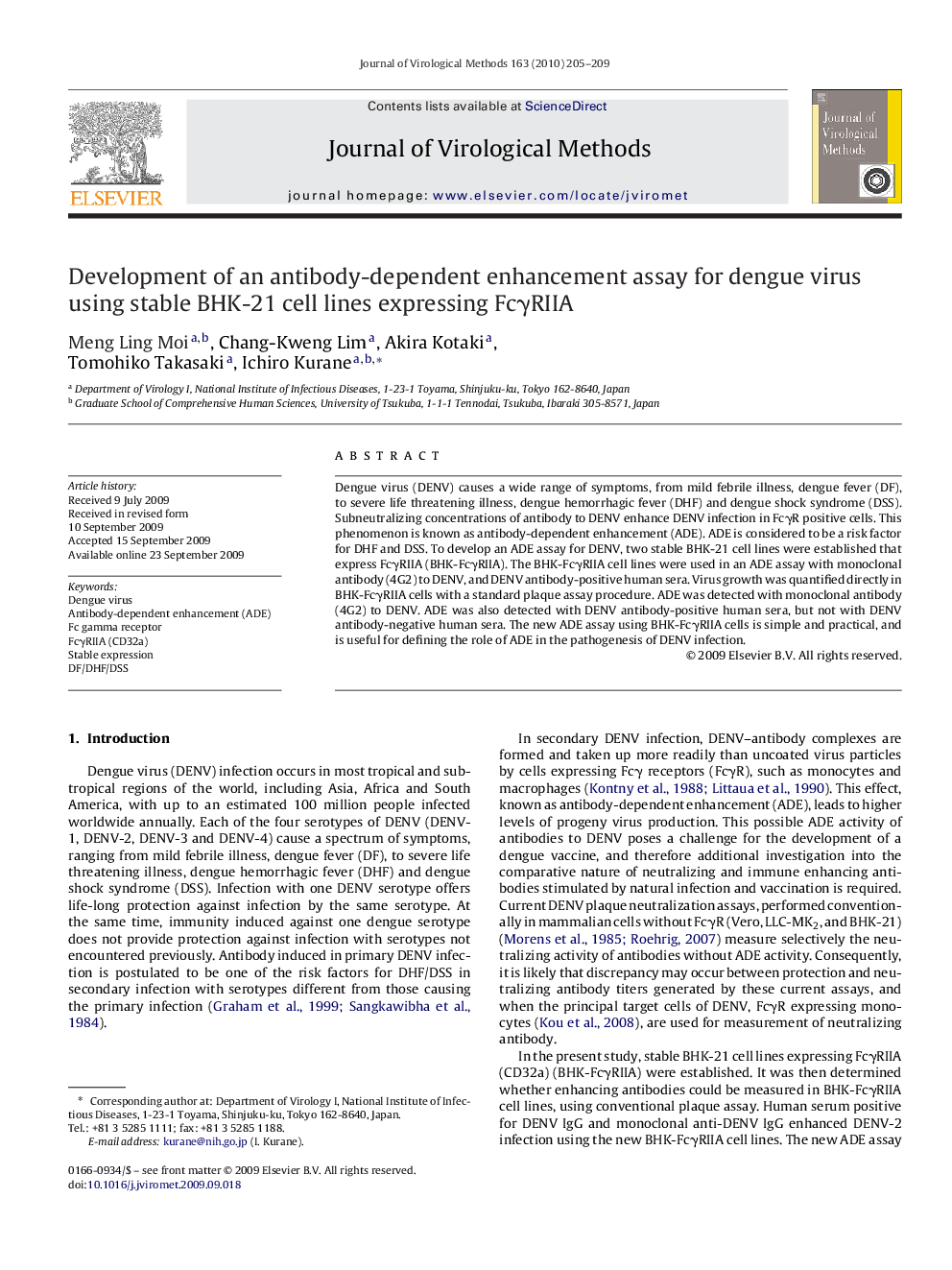| Article ID | Journal | Published Year | Pages | File Type |
|---|---|---|---|---|
| 3407321 | Journal of Virological Methods | 2010 | 5 Pages |
Dengue virus (DENV) causes a wide range of symptoms, from mild febrile illness, dengue fever (DF), to severe life threatening illness, dengue hemorrhagic fever (DHF) and dengue shock syndrome (DSS). Subneutralizing concentrations of antibody to DENV enhance DENV infection in FcγR positive cells. This phenomenon is known as antibody-dependent enhancement (ADE). ADE is considered to be a risk factor for DHF and DSS. To develop an ADE assay for DENV, two stable BHK-21 cell lines were established that express FcγRIIA (BHK-FcγRIIA). The BHK-FcγRIIA cell lines were used in an ADE assay with monoclonal antibody (4G2) to DENV, and DENV antibody-positive human sera. Virus growth was quantified directly in BHK-FcγRIIA cells with a standard plaque assay procedure. ADE was detected with monoclonal antibody (4G2) to DENV. ADE was also detected with DENV antibody-positive human sera, but not with DENV antibody-negative human sera. The new ADE assay using BHK-FcγRIIA cells is simple and practical, and is useful for defining the role of ADE in the pathogenesis of DENV infection.
